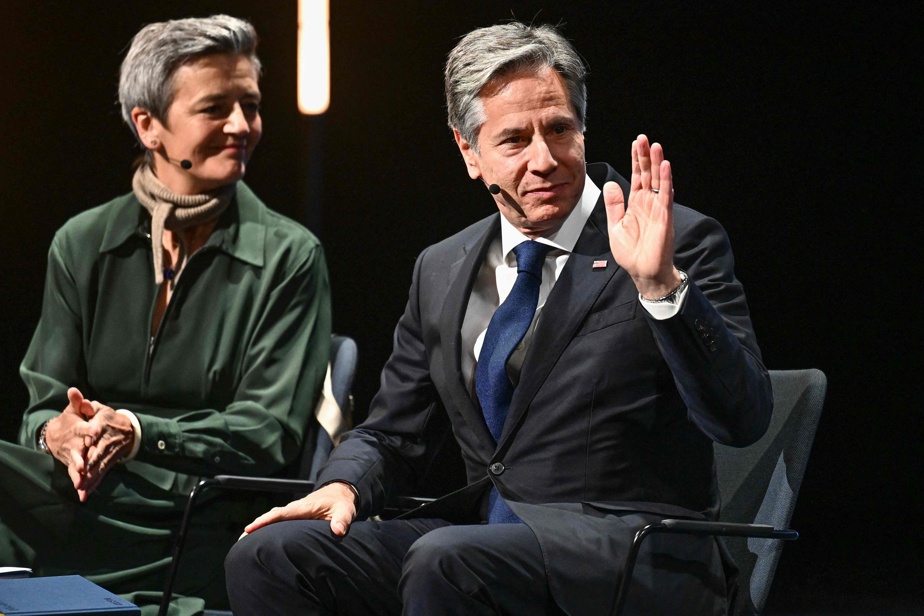(Stockholm) The European Union and the United States announced on Wednesday a draft joint “code of conduct” on artificial intelligence (AI) to be applied voluntarily for companies in the sector, in the face of the risk that China set the tone to regulate a field in full explosion.
From political leaders to the designers of the technology themselves, a global consensus is emerging on the need to regulate – more or less freely – a technology with revolutionary effects, but with high risks of slippage.
After a high-level meeting in northern Sweden, US Foreign Minister Antony Blinken said Westerners felt “fierce urgency” to act as the technology, symbolized by revolutionary tools like the chatbot ChatGBT.
The code of conduct announced on Wednesday “would be open to all like-minded countries”, he said at a joint press conference with heavyweights from Brussels.
European Commission Vice-President in charge of Competition, Margrethe Vestager, known for her tussle with the American internet giants, indicated that a preliminary version would be presented “in the coming weeks”.
“We think it’s really important that people can see that democracies are working,” the Dane said alongside Mr. Blinken.
The idea is to “very, very soon” come up with a final proposal, hoping to get “the widest circle possible,” she said, citing “our friends in Canada, the UK, Japan, India”.
Americans and Europeans fear, among other things, that Chinese standards will be imposed if the West does not unite.
The European Union is preparing a complete and mandatory legal framework that would apply to AI in a few years – at the earliest end of 2025 – but the code of conduct designed with Washington will be voluntary, said Vestager.
The world has been amazed in recent months to discover the capabilities of this maturing technology, with its machines and software capable of learning at breakneck speed to improve their performance.
The sector is dominated by American giants like Microsoft – main shareholder of OpenAI, the firm that operates ChatGPT – or even Meta or Google.
But the ecosystem is changing very quickly, especially with open source platforms capable of competing or even taking the technological lead very quickly.
the computer
The European Union (EU) wants to be the first in the world to adopt a complete and mandatory legal framework to limit the excesses of artificial intelligence, but its entry into force, supported in particular by Commissioner Thierry Breton, will take a few years.
Brussels, with the support of giants like Google, is pushing voluntary rules.
China also has plans for regulation, including a “safety inspection” of artificial intelligence tools.
On the American side, despite numerous discussions, no imperative project is currently on the table.
In the presence of the founder of ChatGPT and boss of Open AI Sam Altman, the question of AI was one of the main topics of the meeting of the Council of Commerce and Technologies (CCT) in Luleå.
Collaborations on 6G, the sixth generation of mobile telecommunications, a rare technological field where Europeans dominate, have also been recorded.
The body was created in 2021 between the 27 and Washington to turn the page on the trade disputes of the Trump years.
The EU and the US “share the common view that artificial intelligence technologies bring great opportunities, but also pose risks to our societies,” the two major powers said in a final statement.
Like an echo, Danish Prime Minister Mette Frederiksen gave a speech to Parliament on Thursday morning partly written by ChatGPT, to highlight its performance, but also the democratic risks.
“While he hasn’t always hit the nail on the head, both in the details of the government work program and the punctuation […] what (ChatGPT) is capable of is both fascinating and terrifying,” said- she told Danish MPs.
